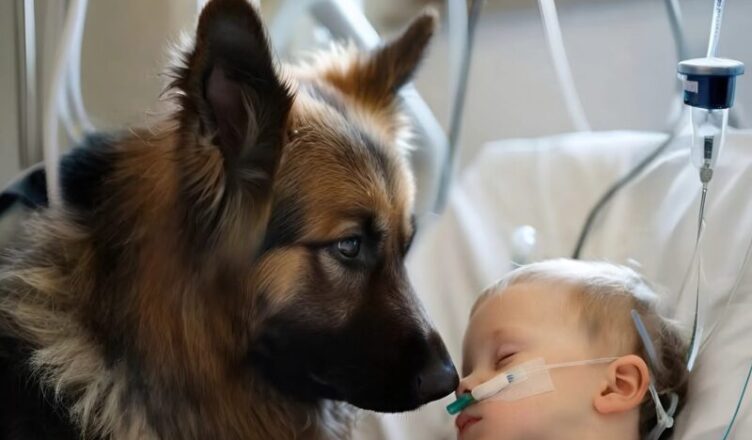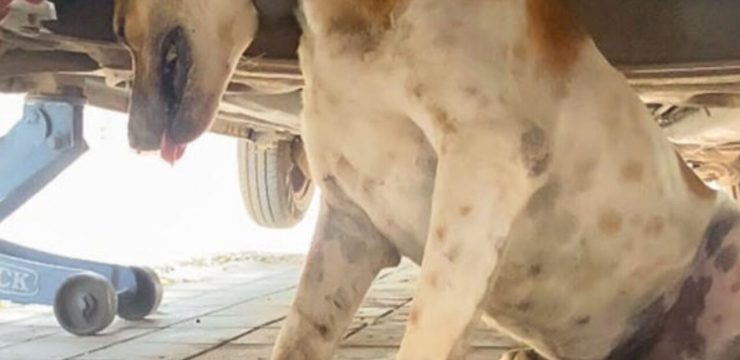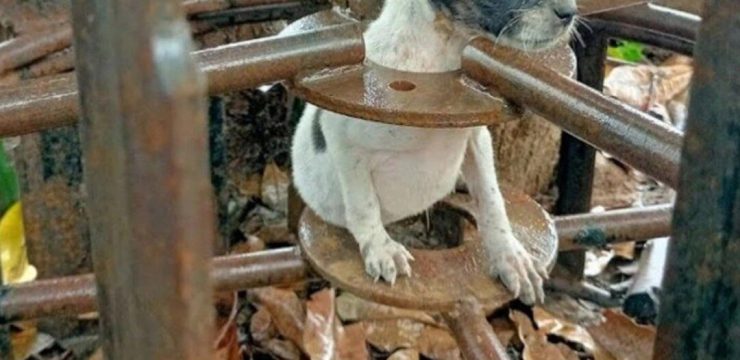The boy had remained alive only because of the machines surrounding him, steady lights blinking rhythmically in the dim hospital room. For three long weeks, he had been lying motionless in the intensive care unit, his small body held together by tubes, monitors, and the quiet hum of life-support equipment. To the doctors, each passing day without improvement felt like another door slowly closing.

They had tried everything humanly possible. New treatment plans were discussed, adjusted, and replaced. Specialists from different departments were brought in to review the case. Additional tests were run, new medications were considered, and experimental approaches were even talked about in desperate whispers. But nothing changed. His condition stayed the same—silent, still, unresponsive.
Gradually, the medical team began preparing the parents for what they feared was unavoidable. They didn’t say it outright; instead, they spoke gently, carefully, reminding them of how unpredictable the human body could be, emphasizing that hope was becoming harder to justify. The miracle everyone had prayed for seemed further and further away.
His mother stopped sleeping altogether. She spent her days and nights sitting beside his bed, holding his small hand as though afraid he would slip away the moment she let go. His father, usually strong and solid, grew quiet and withdrawn. He stood by the window or in the hallway, staring at the floor, unable to voice the dread building inside him. Even the doctors—trained to stay composed—walked out of the room with heavy steps, hiding their frustration and sorrow.
Everyone had begun losing hope.
Everyone except one.
The boy’s dog, a loyal German Shepherd named Rico, refused to believe that his best friend was gone. Every day, no matter the weather, Rico sat outside the hospital entrance, waiting patiently. The parents came and went, their faces pale with exhaustion, but Rico stayed in the same spot, whining softly as though calling for the boy to return. Even people who passed by began to recognize the devoted dog.
Animals were not allowed in the ICU, a rule every staff member knew well. But one afternoon, a nurse happened to notice Rico lying with his head resting on the cold ground just outside the door. His eyes were half closed, not in sleep, but in something resembling grief. She watched him for a moment, feeling a tightening in her chest, and finally whispered to the doctor on duty, “He looks like he’s suffering too. Maybe… maybe we should let them say goodbye.”
The doctor hesitated but eventually nodded.
When Rico stepped into the room, the mother gasped softly. She hadn’t expected anyone to bend the rules, not even out of kindness. Rico moved slowly, almost cautiously, as if he understood the importance of his presence. He approached the bed, stood on his hind legs, and placed his front paws gently on the edge. His eyes fixed on the boy’s face, filled with a deep, wordless emotion.
He didn’t bark, didn’t whine, didn’t move restlessly. Instead, he leaned forward and gave a soft, warm lick on the boy’s forehead, as though offering comfort. Then he carefully placed one paw on the boy’s chest, a gesture that looked like he was reminding him, I’m here. I’ve missed you. Don’t leave me.
And at that exact moment, something unexpected happened.
For days, the monitor beside the bed had remained steady, barely fluctuating. But suddenly, the soft, repetitive beeping grew a little louder and a little faster. The mother cried out, thinking something was going wrong. The doctor, however, froze in place. The heart rate—which had been dangerously low—was rising, just slightly, but unmistakably.
Rico gently nudged the boy’s cheek with his nose.
And then it happened—the slightest, almost invisible movement. The boy’s fingers twitched. So small a gesture that anyone else might have missed it, but to the mother, it was the most extraordinary thing she had ever seen. She covered her face with her hands, tears streaming between her fingers, while the doctor rushed to recheck the machines.
The numbers continued climbing. The oxygen levels stabilized. The heart rate grew stronger. Gradually, as if someone were calling the boy back from someplace far away, every reading on the monitor improved. No one in the room fully understood it, but everyone felt the same thing: this was no coincidence.
Later, when the doctors reviewed the records, they couldn’t explain it scientifically. The only consistent factor in that breakthrough moment was the exact time Rico walked into the room.
From that day on, the medical team allowed Rico to visit every afternoon. And each time the dog came near the bed, the boy reacted—first with small movements, then with faint attempts to open his eyes. Days turned into weeks, and one morning, as sunlight filtered through the blinds, the boy finally opened them fully. His vision was blurry at first, but the very first thing he saw was Rico’s nose pressed gently against his side, faithfully watching over him.
The doctors called it a miracle. The parents called it salvation.
The boy’s recovery continued steadily, and although the journey ahead was still long, the moment Rico walked into that ICU room became the turning point no one had dared to hope for. It was a reminder—quiet, powerful, unforgettable—that sometimes the strongest medicine in the world isn’t found in machines or treatments, but in the unwavering bond of love and loyalty.





